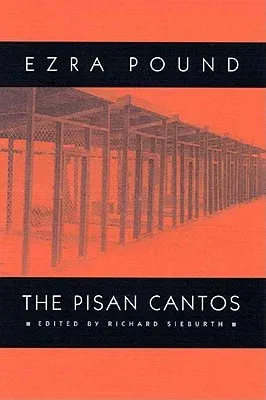Ezra Pound
(Author)The Pisan CantosPaperback, 17 October 2003

Qty
1
Turbo
Ships in 2 - 3 days
Only 4 left
Free Delivery
Cash on Delivery
15 Days
Free Returns
Secure Checkout

Part of Series
New Directions Paperbook
Print Length
192 pages
Language
English
Publisher
New Directions Publishing Corporation
Date Published
17 Oct 2003
ISBN-10
081121558X
ISBN-13
9780811215589
Description
Product Details
Author:
Book Format:
Paperback
Country of Origin:
US
Date Published:
17 October 2003
Dimensions:
22.71 x
15.27 x
1.57 cm
ISBN-10:
081121558X
ISBN-13:
9780811215589
Language:
English
Location:
New York, NY
Pages:
192
Publisher:
Series:
Weight:
317.51 gm